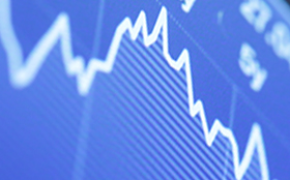Significant government deficit
Published:
For the first time since the mid-1990s, the general government accounts have recorded a deficit. In the second quarter of 2020 general government ran a NOK 64 billion deficit, which corresponds to 8 per cent of GDP.
- Full set of figures
- General government revenue and expenditure
- Series archive
- General government revenue and expenditure (archive)
Updated figures from General government revenue and expenditure show a 9 per cent increase in accumulated expenditure in 2020Q2, and an 11 per cent decrease in accumulated revenue respective to last year. The deficit, also expressed as net lending/borrowing, is the result of these two effects.
Figure 1. Net lending/borrowing as percentage of GDP
| Year | Net lending/borrowing as percentage of GDP | Net lending/borrowing as percentage of GDP |
| 1981 | 4 | |
| 1982 | 3 | |
| 1983 | 6 | |
| 1984 | 7 | |
| 1985 | 9 | |
| 1986 | 6 | |
| 1987 | 4 | |
| 1988 | 2 | |
| 1989 | 1 | |
| 1990 | 2 | |
| 1991 | 0 | |
| 1992 | -2 | |
| 1993 | -1 | |
| 1994 | 0 | |
| 1995 | 3 | |
| 1996 | 6 | |
| 1997 | 7 | |
| 1998 | 3 | |
| 1999 | 6 | |
| 2000 | 15 | |
| 2001 | 13 | |
| 2002 | 9 | |
| 2003 | 7 | |
| 2004 | 11 | |
| 2005 | 15 | |
| 2006 | 18 | |
| 2007 | 17 | |
| 2008 | 19 | |
| 2009 | 10 | |
| 2010 | 11 | |
| 2011 | 13 | |
| 2012 | 14 | |
| 2013 | 11 | |
| 2014 | 9 | |
| 2015 | 6 | |
| 2016 | 4 | |
| 2017 | 5 | |
| 2018 | 8 | |
| 2019 | 6 | |
| 2020Q1 | 4 | |
| 2020Q2 | -8 |
Reduced dividends and tax revenue
Tax revenue has declined, largely due to a sharp reduction in taxes from the petroleum sector. Due to deferred dividend payouts from several companies in the government portfolio, the recorded 2020Q2 revenue from dividends is much lower than usual. Dividends from the Government Pension Fund Global have also declined.
Increased benefits and transfers
The coronavirus situation has prompted increased social benefits payments, with the sharpest increase recorded in unemployment benefits. The central government response has also increased capital transfers, the strongest driver being the stimulus package provided to oil and gas (see box below). Additionally, the government has approved guarantee schemes for airlines and small and medium-sized enterprises. The projected losses from these schemes are recorded as capital transfers.
Current transfers have increased as a result of compensation payments from the central government to enterprises affected by slower turnover in the wake of the corona outbreak.
Spike in subsidies
The government has increased subsidies as part of its response to the pandemic. In large measure the increase stems from reduced employers’ contributions to the National Insurance Scheme in May and June, recorded as wage subsidies in government finance statistics. Subsidies have also been directed at rail companies and airlines.
Contact
-
Eivind Andreas Sirnæs Egge
-
Frode Borgås
-
Aina Johansen
-
Statistics Norway's Information Centre

